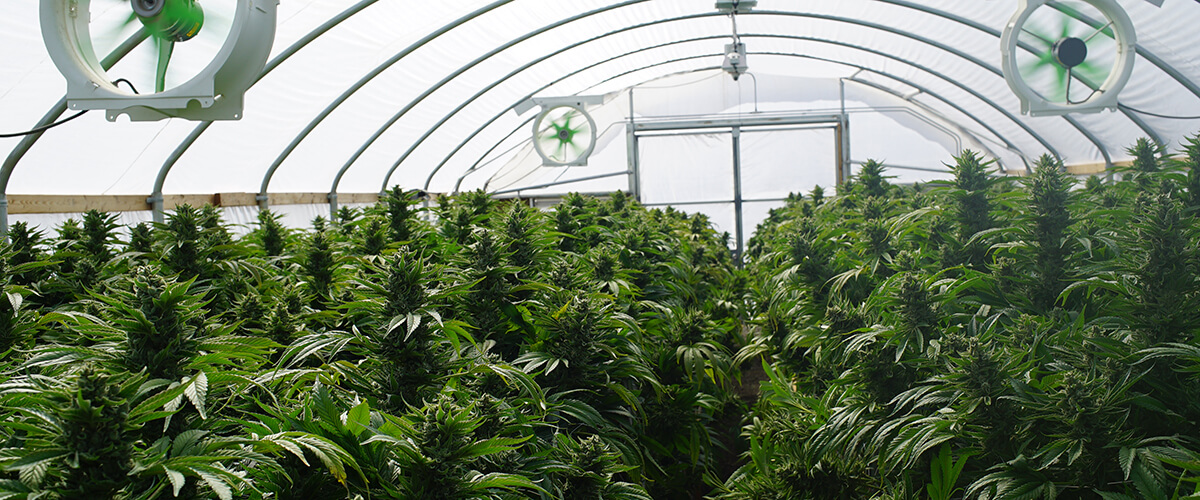The agency hopes to more than double the amount of marijuana that can be grown in the U.S. for research.
The Drug Enforcement Administration (DEA) last week took steps to significantly up the amount of cannabis that can legally be grown in the United States for anticipated government-approved research.
In new Federal Register filings, the DEA moved to increase the cannabis quota for both the current year and in 2019 “to provide for the estimated medical, scientific, research, and industrial needs of the United States, for lawful export requirements, and for the establishment and maintenance of reserve stocks.”
As first reported by Marijuana Moment, the agency has upped the amount of marijuana for 2018 to more than 2,500 pounds, more than double the 978 pounds it initially filed late last year. For 2019, the agency has boosted the proposed cannabis quota to more than 5,400 pounds — a fivefold increase from 2018’s initial quota.
While the DEA did not provide a reason for wanting to increase cannabis production so dramatically for 2018 and 2019, the move could be related to an ongoing effort to license more legal growers for federally-sanctioned research.
Since 1968, the University of Mississippi has maintained a monopoly on the production of research-grade cannabis. Researchers have long criticized the quality of the marijuana from the facility, complained about delays, and have said getting approvals to obtain cannabis there is challenging.
Toward the end of Barack Obama’s administration in 2016, the DEA moved to address the issue by expanding the number of licensed growers of research cannabis. While at least 26 facilities have since filed proposals for licenses, U.S. Attorney General Jeff Sessions and his Justice Department have actively blocked the DEA from acting on any of the applications.
Several Members of Congress have repeatedly pushed Sessions on the issue. In July, a bipartisan group of U.S. Senators directed a letter to the attorney general, demanding answers on the status of the applications. Months earlier, Republican Orrin Hatch of Utah and Democrat Kamala Harris of California sent a similar letter to Sessions, urging him to stop blocking cannabis research.
The DEA proposal also contains a provision allowing the production of 848 pounds of tetrahydrocannabinol (THC) in 2019. That is the same amount the agency approved in 2018.
The DEA quota notice was published in the Federal Register August 23. The public has 30 days from publication to submit comments. After which, the agency can amend the proposal before finalizing.

DEA’s Simultaneous Push to Reduce Opioids
As the DEA moves to increase the amount of cannabis grown, it is also pushing to significantly reduce the amount of some opioid drugs that are produced domestically. The agency announced that it has proposed the reduction in an effort to help address the nation’s opioid crisis.
“We’ve lost too many lives to the opioid epidemic and families and communities suffer tragic consequences every day,” DEA Acting Administrator Uttam Dhillon said in a press release.
“This significant drop in prescriptions by doctors and DEA’s production quota adjustment will continue to reduce the amount of drugs available for illicit diversion and abuse while ensuring that patients will continue to have access to proper medicine.”
Specifically, the DEA has proposed to reduce six of the most frequently misused prescription opioid drugs, including oxycodone, hydrocodone, oxymorphone, hydromorphone, morphine, and fentanyl.
A mounting body of evidence indicates that cannabis could play a significant role in solving the nation’s opioid epidemic by serving as a safer alternative for pain management. Studies have shown that making marijuana legally available can effectively reduce opioid intake, prescriptions for opioids, as well as opioid-related hospitalizations and fatal overdoses.
Despite the evidence, the Donald Trump Administration has yet to acknowledge that medical marijuana could prove beneficial for addressing the national crisis. The White House Commission on Combating Drug Addiction and the Opioid Crisis, headed by former New Jersey Gov. Chris Christie, actively denounced medical marijuana as an option.
Learn More About Cannabis Research Efforts
You can learn about the cannabis research that has been completed so far through our education page, or visit our news page to keep up with the latest findings.






